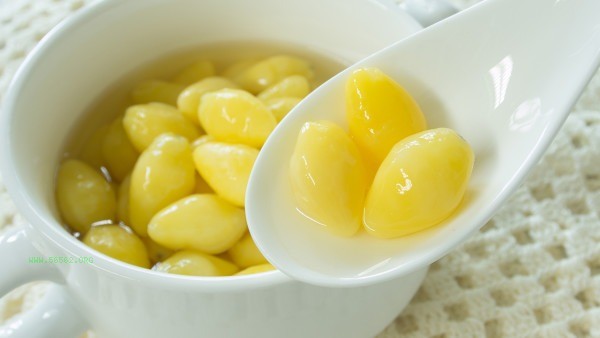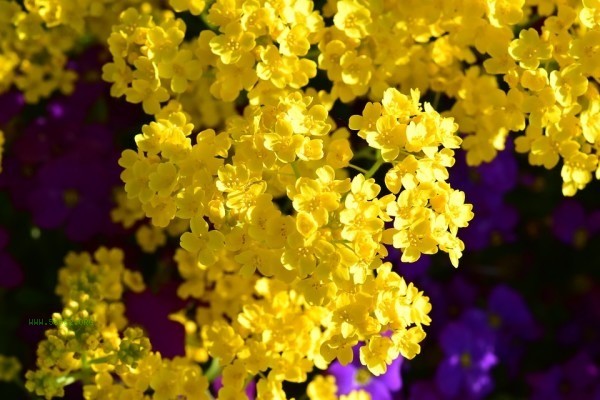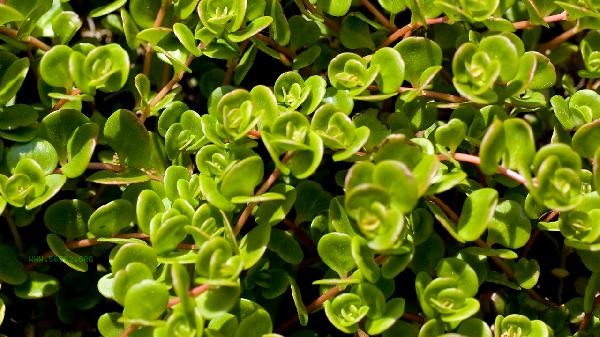After autumn, Aunt Li always feels a little uncomfortable and her appetite is not very good. At first, she didn't take it seriously, thinking it was just a small problem caused by seasonal changes. But later on, as the symptoms became increasingly severe, I went to the hospital for a check-up and only then did I discover that there were some problems with my liver. After inquiring about her lifestyle habits, the doctor pointed out the potential harm of improper autumn health preservation.

"Supplement in autumn, hunt tigers the following year". Autumn wind rises, delicious food flies, trees and trees turn yellow, chickens and ducks return. Autumn is not only the season of harvest and precipitation, but also the golden period for us to nourish our body and mind, and nourish our health. Supplementing in autumn is in line with the times. Traditional Chinese medicine emphasizes the unity of heaven and man, believing that the human body should be in harmony with the changes in nature. In autumn, the yang energy gradually decreases and the yin energy gradually grows, which is the season of "collection" and "storage". At this moment, supplementing is like adding bricks and tiles to the "building" of the body, storing energy for the upcoming cold winter, enhancing resistance, and allowing the body to maintain warmth and vitality in the cold season.
Supplement in autumn to nourish the spleen and stomach. After a scorching summer, our spleen and stomach function is often relatively weak, with loss of appetite and decreased digestive ability. And the cool autumn climate is a good time to regulate the spleen and stomach. Moderate consumption of warm and nourishing foods such as lotus seeds, yam, red dates, etc. can not only invigorate the spleen and stimulate appetite, but also nourish the middle and qi, laying a solid foundation for health.
"Four precautions in autumn, eating more to prevent liver cancer". Although autumn is suitable for nourishment, it cannot be a reason for us to indulge in excessive eating and drinking. Autumn, as a season of transition from summer to winter in nature, has its unique characteristics, such as abundant harvests, gradually decreasing temperatures, dry climate, and reduced differences in the length of day and night. As the seasons change, our diet and lifestyle habits also need to be adjusted accordingly to avoid damage to the liver caused by improper diet or lifestyle habits.

"Four things to avoid in autumn, eating more to prevent liver cancer", which four things should not be eaten excessively in autumn? In autumn, as the weather gradually cools down and people's appetite generally increases, they tend to choose high calorie, high sugar, and high-fat foods to resist the cold. However, excessive intake of such foods not only leads to weight gain, but may also impose a significant burden on the liver. The dry climate in autumn can easily lead to water loss in the human body, and high sweet and high-fat foods often lack sufficient water and dietary fiber, further exacerbating the body's dehydration state. This dehydration state not only affects the normal metabolism of the body, but may also impose an additional burden on the liver, as it requires more water to participate in detoxification and metabolic processes.
High sweet and high-fat foods often contain a large amount of sugar and saturated fat, which can produce a large amount of free radicals and toxic substances such as acetaldehyde when metabolized in the liver. Acetaldehyde is a toxic metabolite that can directly damage liver cells. Long term accumulation may lead to genetic mutations during liver cell necrosis and regeneration, thereby increasing the risk of liver cancer.
High fat diet can also affect the internal "clock" molecular mechanism of the body, induce metabolic disorder, and lead to metabolic diseases such as diabetes and obesity. These diseases are closely related to the occurrence of liver cancer, as they all increase the burden on the liver, making it more susceptible to damage and disease invasion. High sugar diet can also easily lead to elevated blood sugar, insulin resistance, and increased risk of diabetes and cardiovascular disease, which are closely related to liver disease.
II. Wine
In autumn, the climate is pleasant, and there are more gatherings and celebrations, making wine a must-have for many occasions. However, excessive alcohol consumption can cause particularly severe damage to the liver.
As the temperature gradually decreases in autumn, the metabolism and blood circulation of the human body are relatively slowed down, and the detoxification function of the liver is also weakened. In autumn, the air humidity is low, and the human body is prone to dehydration. The skin, respiratory tract, and other parts are easily affected by dryness, which can also affect the normal function of the liver. The large temperature difference between day and night in autumn can easily lead to a decrease in human immunity and susceptibility to viral and bacterial infections. Long term heavy alcohol consumption can directly lead to diseases such as alcoholic hepatitis, alcoholic fatty liver, and alcoholic cirrhosis. Alcohol metabolism in the liver produces toxic metabolites such as acetaldehyde, which can directly damage liver cells. Long term accumulation can lead to cirrhosis and increase the risk of liver cancer. Alcohol can weaken the body's immune system, reduce resistance to viruses and bacteria, and increase the risk factors for liver cancer such as hepatitis virus infection. Research has shown that alcohol can promote the growth and spread of liver cancer cells, thereby accelerating the occurrence and development of liver cancer. In autumn, due to climate characteristics and changes in human physiological functions, the detoxification and immune functions of the liver are relatively weak. Excessive drinking at this time will undoubtedly increase the burden on the liver, accelerate the damage and necrosis of liver cells. Meanwhile, autumn is also a high-risk season for respiratory and gastrointestinal diseases. Excessive alcohol consumption can further weaken the body's immune system, increase the risk of infection with viruses and bacteria, and indirectly increase the risk of liver cancer. Alcohol can interfere with the body's absorption and utilization of nutrients, leading to malnutrition and further damaging liver function.
Thirdly, moldy food
In autumn, the temperature gradually decreases, but the humidity is high, which can easily lead to moldy food. In autumn, yin and yang begin to change in nature, with yang gradually fading and yin gradually growing, and the climate transitioning from hot to cold. This temperature change makes many foods susceptible to moisture and mold during storage. Especially foods rich in starch and protein, such as peanuts, corn, and rice, can easily become breeding grounds for mold when they are not dried or stored properly. In moldy food, the metabolism of microorganisms produces a highly toxic carcinogen - aflatoxin. This toxin is widely recognized as one of the strongest known carcinogens and is closely related to the occurrence of liver cancer. Long term intake of foods containing aflatoxins significantly increases the risk of liver cancer. Although autumn brings the joy and beauty of a bountiful harvest, it also carries hidden risks to food safety. For the sake of our own health, we should always remain vigilant, store food reasonably, avoid consuming moldy food, and strengthen health management and regular physical examinations. Only in this way can we fully enjoy the beauty and tranquility brought by autumn.
IV. Pickled Foods
Autumn, as a transitional season from summer to winter, is known for its abundant fruits, gradually decreasing temperatures, and dry climate. However, excessive consumption of pickled foods during this season, especially long-term high intake, may increase the risk of developing liver cancer. Autumn is the season of harvest, but it also means that many foods need to be properly preserved. Marination, as an ancient way of food preservation, is widely used in various fruits, vegetables, and meats. The autumn climate gradually becomes dry, which is conducive to the inhibition of microorganisms in pickled foods, but at the same time, it may also make it difficult for harmful substances produced during the pickling process to evaporate. As the temperature drops, many friends tend to choose salty, fresh, and heavy flavored foods to warm themselves up. Pickled foods are highly favored due to their unique taste and flavor. During the processing of pickled foods, if the salt content is insufficient or the pickling time is not appropriate, it is easy to be contaminated by microorganisms. These microorganisms can convert nitrate in food into nitrite. Nitrite itself is not carcinogenic, but after entering the human body, under specific conditions (such as acidic environment or coexistence with amines), it can be converted into carcinogenic substances - nitrosamines. Nitrosamine has been proven to be a triggering factor for various cancers, with the most significant being liver cancer, esophageal cancer, and gastric cancer. Long term intake of pickled foods containing nitrite undoubtedly increases the risk of developing these cancers. In addition to the risk of liver cancer, excessive consumption of pickled foods may also lead to health problems such as hypertension and cardiovascular disease. The high salt content in pickled foods can lead to an increase in sodium ions in the body, which in turn can cause elevated blood pressure and increased burden on the heart.
Four taboos for nourishing the liver in autumn
Irregular diet
Autumn is a season of abundant harvest, with a variety of delicious foods, but excessive intake of high-fat, high calorie, spicy or greasy foods can increase the burden on the liver. These foods are difficult to digest and long-term accumulation can lead to diseases such as fatty liver and cirrhosis. In autumn, people are also prone to overconsumption of some supplements or health supplements, which may also cause damage to the liver. Eat a balanced diet, control the intake of fat and sugar, and consume more foods rich in dietary fiber, such as vegetables, fruits, and whole grains. At the same time, avoid excessive consumption of supplements or health products and try to do so under the guidance of a doctor or nutritionist.
Emotional fluctuations
In autumn, as the weather turns cooler, people's emotions are easily affected, leading to emotional problems such as anxiety and depression. Traditional Chinese medicine believes that the liver is responsible for regulating and releasing qi, which is closely related to emotions. Excessive emotional fluctuations can affect the liver's drainage function, leading to liver qi stagnation and ultimately causing liver disease.
Lack of Sleep
In autumn, the weather is cool and people are prone to staying up late or not getting enough sleep. Long term sleep deprivation can affect the liver's ability to repair and regenerate, leading to liver damage. The temperature difference between day and night in autumn is large, and the temperature is lower at night. If not kept warm properly, it can easily lead to diseases such as colds, further affecting liver health.
Overwork
Autumn is the season of harvest, and people are often busy with work and household chores, which can easily lead to physical exhaustion. Overwork can consume a lot of physical and mental energy, affecting the liver's ability to repair and regenerate. Overwork can also lower the body's immune system and increase the risk of illness.
Dietary recommendations for preventing liver cancer
1. Eat more bamboo shoots

Bamboo shoots have the effects of promoting bowel movements and detoxification. The cellulose in bamboo shoots can promote intestinal peristalsis and help eliminate toxins and waste from the body. Bamboo shoots are also rich in vitamins and minerals, which help enhance the metabolic function of the liver. Cooking with bamboo shoots using ingredients such as shiitake mushrooms, monkey head mushrooms, lean pork or black chicken is both delicious and healthy.
2. Eat more asparagus
Asparagus contains various anti-cancer substances, such as nucleic acid, folate, glutathione, etc. These substances can effectively inhibit the growth and spread of cancer cells. Asparagus also has the effect of reducing fatigue and enhancing appetite. Boil fresh asparagus and mix it cold before consumption, or boil it in water as a substitute for tea.
3. Eat more lettuce
Lettuce is rich in nutrients such as calcium, carotene, and vitamin C. These nutrients help enhance the detoxification function and immunity of the liver. Lettuce can also promote the secretion of gastric juice, digestive enzymes, and bile, which helps to enhance appetite and digestion. Peel and slice the asparagus, stir fry or mix it cold before consumption, which is both refreshing and healthy.
Control alcohol consumption: Long term excessive alcohol consumption can damage liver cells, leading to diseases such as alcoholic liver disease and liver cancer. Therefore, alcohol consumption should be controlled, with men not exceeding 50 grams per day and women not exceeding 25 grams per day.
Quit smoking: Smoking can damage the health of the liver and other organs. To protect liver health, it is advisable to quit smoking as soon as possible.
Reasonable intake of fats: The daily intake of fats should be controlled within 30 grams to avoid excessive intake of high-fat foods.
Use drugs and health supplements with caution: Most drugs are metabolized in the liver, and some drugs can damage the liver. Therefore, scientific medication should be taken under the guidance of a doctor when suffering from illness to avoid drug abuse.




Comments (0)
Leave a Comment
No comments yet
Be the first to share your thoughts!